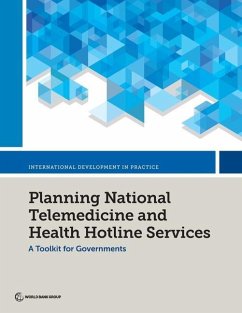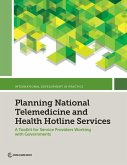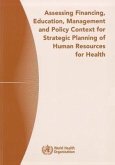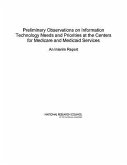The coronavirus (COVID-19) pandemic underscored the need for many countries to develop more effective and accessible primary health care systems, as well as more efficient ways to quickly disperse and collect health information. Governments throughout the world-regardless of economic status-identified the need for robust digital health care solutions as an important element in attaining these goals. Telemedicine or health hotline services have shown for more than 60 years that they can help people to receive accurate and timely health information and make informed decisions about when to seek treatment. These services offer the ability to provide health information and care remotely, thereby extending the reach of the health care system, improving efficiencies, and enhancing the quality of care. Despite telemedicine's well-established benefits, few nationally scaled telemedicine or health hotline services exist-and even fewer are government owned. Health services that are stewarded by governments and embedded into public health systems are more likely to sustain impact at scale. However, many digital health solutions are set up for emergency response or with donor funding but are not embedded within the government systems and budgets. Other proposed solutions for national systems fail, despite their effectiveness or impact, because they are developed without government input and without a plan for government to eventually steward the solution. Planning National Telemedicine and Health Hotline Services: A Toolkit for Governments builds on the existing evidence to help governments establish successful and sustainable nationwide telemedicine or health hotline services. This toolkit lays out a multiphased approach to implementing these services that helps to ensure that governments are fully committed to providing longterm and sustainable services within the framework of the public health system. The phases include the initial assessments through technical considerations; setting up and scaling up these services; designing and implementing solutions; developing strategies and implementation roadmaps and budgets; and partnering with the private sector. The toolkit also provides helpful tools, for example, to cost out and design the system, contract with service providers, and engage mobile network operators.
Hinweis: Dieser Artikel kann nur an eine deutsche Lieferadresse ausgeliefert werden.
Hinweis: Dieser Artikel kann nur an eine deutsche Lieferadresse ausgeliefert werden.








